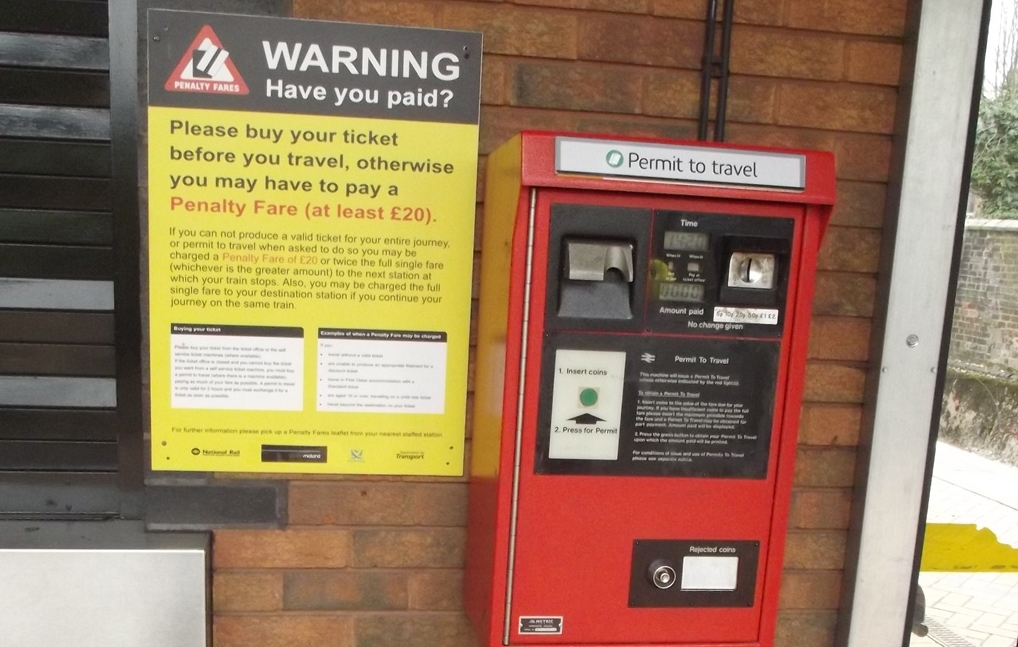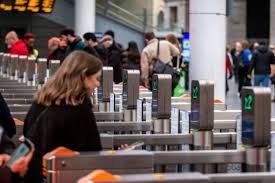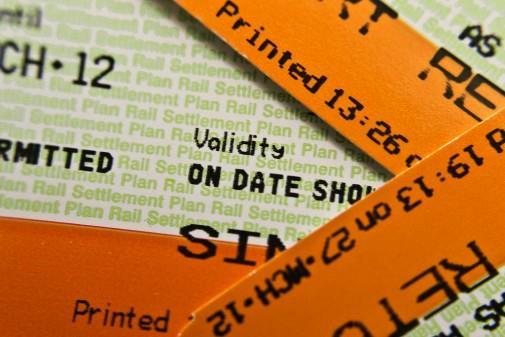Receiving a penalty fare notice can be a confusing and alarming experience. Whether you forgot to validate your ticket, were caught in a situation beyond your control, or simply misunderstood the rules, you may find yourself holding a notice demanding payment, or worse, facing a possible prosecution if you fail to act. As a solicitor who has handled numerous fare evasion matters, I've seen firsthand how quickly a minor mishap can escalate into a major headache if the correct steps aren't taken immediately.
This guide will explain what a penalty fare notice is, how it differs from an unpaid fare notice, why these notices are issued, how to appeal, and what to do if you discover that the letter isn't even addressed to the correct person. We'll also discuss the process for paying or appealing the notice, the role of agencies like IRCAS, the possible impact of prosecution reports, and how to handle issues like CCTV evidence or complaints against inspectors. Ultimately, the goal is to equip you with the knowledge you need to protect your rights and resolve the matter as smoothly as possible.
Understanding Penalty Fare Notices vs. Unpaid Fare Notices
A penalty fare notice is usually issued on the spot by a revenue protection officer when they believe you do not have a valid ticket or pass for your journey. The penalty is typically a fixed amount above the standard fare, often around £20 or more, depending on the transport company, or a multiple of the full single fare you should have paid.
An unpaid fare notice, on the other hand, often arises when you've traveled without completing payment for some reason (for example, a malfunctioning ticket machine, insufficient funds on your Oyster card, or an overlooked top-up). Instead of issuing a strict penalty, the operator might note that you owe the unpaid portion of the fare. However, if it remains unsettled, it can eventually escalate in the same way a penalty fare can, including additional fees or legal proceedings.
Why These Notices Are Issued
Transport operators and local authorities issue penalty or unpaid fare notices to deter fare evasion and recover costs from those who haven't paid for their journeys. Under UK law and various byelaws, travelling without a valid ticket, even by mistake—exposes you to potential enforcement. Some people wonder why they can't simply show a receipt, an online purchase reference, or partial evidence of a ticket. However, most operators have strict rules requiring a physical (or officially registered digital) ticket. They generally won't accept "proof of purchase" documents on their own because such evidence can be forged or misapplied to different journeys.
Immediate Steps: Check the Notice and Deadlines
The first thing to do when you receive any fare-related notice is to examine it closely:
- Verify the DetailsMake sure your name, the date, the journey details, and any reference numbers are correct. Simple clerical errors can create major complications if left unaddressed.
- Identify the DeadlineMost penalty fare or unpaid fare notices require action—either paying or lodging an appeal—within a strict deadline, often 21 days. Missing this deadline could lead to an automatic increase in the amount owed or even prosecution.
- Consider Evidence You HaveIf you feel the notice was issued unfairly, think about what might support your side: photographs of broken machines, copies of tickets you purchased, or bank statements confirming your transaction.
How to Appeal a Penalty Fare (and Whether You Must Pay First)
If you believe the penalty is unjust or based on incorrect assumptions, you typically have the right to appeal. Each transport company has an established process, often involving a dedicated department or an independent adjudicator.
- Grounds for Appeal: Common reasons include ticket machine malfunctions, staff errors, or valid tickets not scanning properly. If you have a disability or other special circumstances that impeded your ability to purchase the correct fare, include that detail.
- Payment Before Appeal?: Some operators require you to pay the penalty first and then proceed with the appeal. Others allow the process to go forward without payment. Read the instructions on your notice (or the operator's website) to be certain of their policy.
- Appeal Deadlines: Even if you have a strong case, missing the deadline to file an appeal is often fatal to your chances of a successful challenge. Make sure to submit your documentation and formal appeal on time.
Late Appeals and Potential Consequences
If you fail to act within the specified timeframe—either by paying or appealing—the amount due could increase or the matter could escalate to court proceedings. Late appeals are sometimes allowed if you can show a legitimate reason (such as hospitalization or a family emergency), but acceptance of a late appeal is at the operator's discretion. In serious or repeated cases, or if the fare is significantly high, an operator might issue a prosecutions report to build a case against you. This could lead to:
- Magistrates' Court Summons: You could receive a summons requiring you to appear in court.
- Higher Fines: If convicted, you may face fines significantly higher than the original penalty notice.
- Criminal Record: A conviction under relevant railway byelaws or the Regulation of Railways Act 1889 can result in a criminal record, affecting travel, employment, or other aspects of your life.
Payment Options for Penalty or Unpaid Fare Notices
Should you decide to pay—either to avoid hassle or because you accept the penalty—follow the instructions provided. Most operators offer online payment portals, telephone payment, and sometimes postal methods. Keep these tips in mind:
- Prompt Payment: Paying by the due date (often 21 days) might prevent additional fees.
- Record Keeping: Always keep a copy of the payment confirmation or receipt in case the operator later claims it wasn't received.
- Partial or Installment Payments: Some operators do not allow partial or staggered payments unless you negotiate an arrangement in exceptional circumstances.
Letters Sent to the Wrong Person or Address
It's not uncommon for a penalty or unpaid fare notice letter to arrive at an address where the named individual does not reside or is unknown. This can happen if the passenger gave incorrect details to the inspector or if there was a database error.
- Immediate Response: Don't ignore it. Contact the issuing authority or the debt collection agency handling the case (such as IRCAS). Provide proof (like a utility bill or photo ID) showing that you are not the named individual.
- Potential Identity Issues: If you suspect your details were used fraudulently, you might need to file a police report for identity theft or fraud.
Why You Might Receive a Separate Letter from IRCAS
IRCAS (Independent Revenue Collection & Support) is a company often used by UK transport operators to process penalty fares and unpaid fare notices. If you've ignored the initial notice, or if the operator failed to collect payment directly, you may receive a letter from IRCAS stating that the balance has increased due to administrative fees or overdue charges. This letter might also threaten further legal action. The best approach is to contact them directly, clarify the status of your penalty, and either pay or lodge a formal dispute if you have grounds to do so.
Complaining About a Revenue Inspector
If you believe the inspector behaved improperly—used threatening language, was discriminatory, or made glaring procedural errors—you have the right to file a complaint. Each transport operator typically has its own complaints process, which can be found on their official website or by calling their customer service line. Although making a complaint won't automatically void a penalty fare notice, it could support your appeal if you can show that the inspector did not follow the correct procedure or acted unprofessionally.
Understanding Prosecutions Reports
A prosecutions report is a document prepared by the inspector or enforcement team if they suspect deliberate fare evasion or repeated offenses. This report may include:
- Details of the Incident: Date, time, station(s), and statements from the passenger.
- Evidence: Photographs, witness statements, or CCTV footage.
- Recommended Action: Whether to proceed with an out-of-court settlement, a penalty fare, or a criminal prosecution.
If you're informed that such a report has been filed, it's a serious matter. At this point, consulting a solicitor can significantly affect the outcome—whether that's negotiating a settlement or preparing a defense if the case goes to court.
Access to CCTV Evidence
In some cases, especially if you believe you were unfairly issued a notice, CCTV footage can help prove your version of events—such as an obstructed ticket machine or short staffing that prevented you from purchasing a ticket. You can request this footage from the transport operator under data protection laws. However, operators often delete CCTV after a certain period, so act quickly. Keep in mind that the operator may use the same footage against you if it contradicts your account.
Special Considerations for TfL Prosecution Cases
Transport for London (TfL) has a robust prosecution department, handling thousands of fare evasion cases each year. If you receive a letter indicating that TfL is considering prosecution, the stakes can be higher than a simple penalty fare. Prosecution might lead to a criminal conviction if you're found guilty of fare evasion under the relevant byelaws or legislation. To avoid a potentially career-affecting outcome, many individuals opt to seek legal advice to explore:
- Early Settlements: TfL sometimes accepts financial settlements in lieu of prosecution, especially for first-time offences.
- Mitigating Circumstances: If you had extenuating reasons for travelling without a valid ticket, presenting them effectively can influence TfL's decision.
Conclusion: Seek Resolution and, If Necessary, Help from a Solicitor
A penalty fare or unpaid fare notice is not automatically a criminal conviction, but ignoring it or missing deadlines can escalate matters quickly. Familiarize yourself with the notice's requirements, decide if you should pay or appeal, and gather any evidence supporting your position. If you receive letters addressed to the wrong individual, promptly inform the issuing authority. Should you find yourself facing additional letters from agencies like IRCAS or threatened with a prosecutions report—particularly in TfL cases—it may be wise to consult a solicitor.
- Act Quickly: Don't let deadlines pass without responding.
- Keep Records: Documents, payment confirmations, photos, and witness statements can all prove crucial.
- Know Your Rights: You can appeal if you believe a notice is unfair, and you can complain about inspector conduct if necessary.
- Seek Professional Help: If prosecution looms or the matter is complex, a solicitor with fare evasion experience can negotiate on your behalf or prepare a robust defense.
Resolving a penalty fare notice or an unpaid fare notice promptly and correctly can save you not only money and time but also protect you from the potential ramifications of a criminal record. With informed, proactive steps—and expert legal guidance where needed—you can put this stressful incident behind you and ensure you remain on the right track, both financially and legally.



